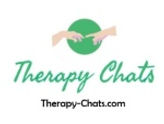The Art of Emotional Regulation: Practical Skills for When Feelings Overwhelm You
- Sep 2, 2024
- 3 min read
Updated: Jun 24, 2025

Do you ever feel hijacked by your emotions – anger that erupts, anxiety that paralyzes, or sadness that drowns? Learning to navigate intense feelings without being consumed by them is a crucial life skill, often referred to as emotional regulation.
What is Emotional Regulation?
Emotional regulation doesn't mean suppressing your emotions or never feeling "negative" ones. Emotions are vital signals. Instead, it refers to your ability to:
Recognize and Understand your emotions.
Influence which emotions you have, when you have them, and how you experience and express them.
Manage and Respond to emotional experiences in a healthy and adaptive way, allowing you to pursue your goals even when feeling distressed.
When emotional regulation skills are underdeveloped, individuals might experience mood swings, impulsive behavior, difficulty in relationships, and prolonged distress.
Insights from Dialectical Behavior Therapy (DBT)
Dialectical Behavior Therapy (DBT), developed by Dr. Marsha M. Linehan, is a highly effective therapeutic approach that places a strong emphasis on teaching emotional regulation skills. While originally designed for individuals with borderline personality disorder, DBT skills are beneficial for anyone struggling to manage intense emotions.
DBT offers a toolkit of practical strategies, including:
Mindfulness Skills:
Observing Emotions: Noticing emotions without judging them or getting swept away by them. Learning to sit with discomfort.
Describing Emotions: Putting words to your feelings, which can help to process them.
Distress Tolerance Skills: These are about surviving crisis situations without making them worse.
Radical Acceptance: Accepting reality as it is, without fighting it, especially when it's painful and can't be immediately changed. This doesn't mean approval, but acknowledgement.
Self-Soothing: Engaging your five senses to comfort and calm yourself (e.g., listening to soothing music, smelling a pleasant scent, wrapping in a soft blanket).
Distraction (ACCEPTS): Temporarily shifting focus using Activities, Contributing, Comparisons, Emotions (opposite), Pushing away, Thoughts (other), Sensations.
Emotion Regulation Skills (longer-term):
Identifying and Labeling Emotions: Increasing your emotional vocabulary.
Checking the Facts: Examining if your emotional interpretation fits the actual facts of a situation.
Problem Solving: If an emotion is a signal that something needs to change, engaging in effective problem-solving.
Opposite Action: Acting opposite to your emotion's urge when the emotion is unjustified or unhelpful (e.g., if anxious about something safe, approaching it instead of avoiding).
Building Positive Experiences: Actively increasing pleasant events in your life to build emotional reserves.
Why Do Emotions Sometimes Feel So Overwhelming?
Several factors can contribute to emotional dysregulation:
High Emotional Sensitivity: Some individuals are naturally more sensitive to emotional stimuli.
Invalidating Environments: Growing up in an environment where emotions were dismissed or punished can hinder the development of regulation skills.
Lack of Skills: Simply not having been taught how to manage emotions effectively.
Stress & Overwhelm: When already stressed, our capacity to regulate emotions diminishes.
The Goal: Riding the Waves, Not Drowning In Them
Learning emotional regulation is like learning to surf. You can't stop the waves (emotions), but you can learn to ride them with skill and balance, rather than being knocked over by them. It's an ongoing practice, not a one-time fix. The first step is understanding that these skills can be learned.
Ready to Navigate Your Emotional World with Greater Skill?
If intense emotions frequently derail your peace or your goals, imagine having a toolkit of practical strategies to help you manage them more effectively. What if you could learn to experience your feelings fully without letting them dictate your actions in unhelpful ways? Building these skills can be a life-changing endeavor.
Therapy-Chats is available 24/7 to support you in developing personalized and evidence-based emotional regulation skills. Our therapist chats can help you understand your emotional patterns and guide you in learning and applying evidence-based strategies adaptive to your unique needs. Connect with us to start building your capacity to navigate life's emotional currents with greater confidence and calm.



Comments